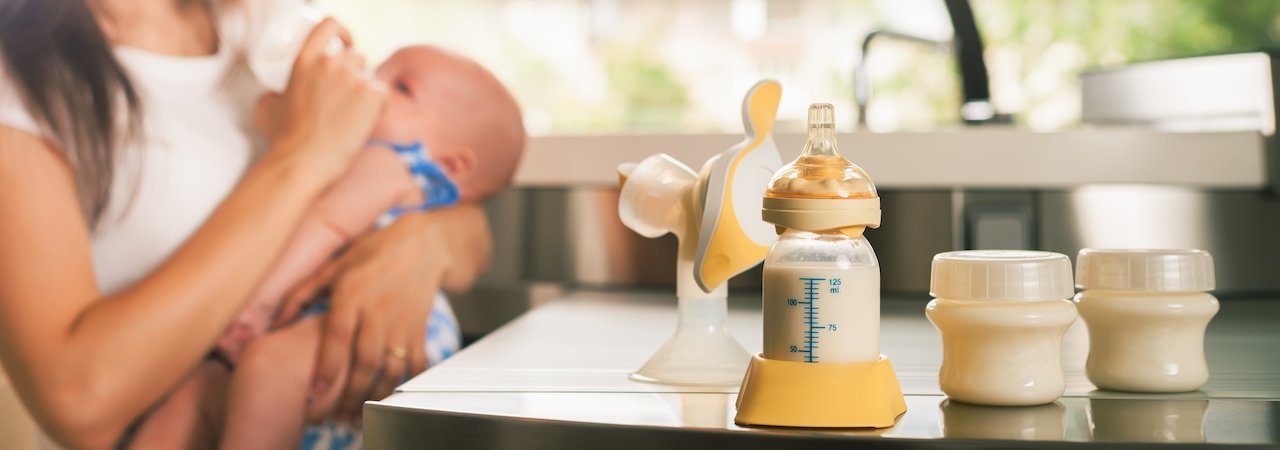
Breast pumps have made life easier for mothers of infants around the world. The convenience of pumping out breast milk and storing it for later use has allowed new mothers to return to work earlier while still being able to provide their babies with breast milk.
However, using breast pumps has some side effects that not many mothers are aware of. Some of this include:
1. It Can Reduce Milk Supply
A breast pump’s mechanism is very different from a newborn latching on to your nipple and suckling. The latching on of a baby is what stimulates more milk production in your body. If a baby is not allowed to latch on, the milk production gets reduced.

2. Storing Depletes Nutrients of Breast Milk
When the baby feeds directly from the mother, the baby gets all the nutrients needed for healthy growth. Freezing or refrigerating the breast milk, thawing and reheating causes depletion of vital nutrients in the breast milk.
3. Breast Pumps Can Cause Nipple and Breast Tissue Damage
Breast pumps can damage the nipples and breast tissue. The wrong setting can cause excruciating pain while pumping. Manual pumps can cause pain in both the breasts and the mother’s hands as pumping manually is laborious and tiring.
4. Feeding with Both Bottle and Breast Confuses Babies
This is due to the difference in the suckling mechanism in both cases. The baby may suck harder on the mother’s nipples, as he does with the bottle. This could also lead to sore nipples in the mother. This could also happen because the baby may not latch-on correctly while feeding directly because the baby has become used to feeding on a bottle with a rubber nipple.

5. It Can Cause Painful Engorgement and Excessive Let-down
One of the electric breast pump side effects is that mothers pump too much so that they can have a big supply stored for later use. This causes the release of too many hormones in the body which make the breasts swell and fill with too much milk. This is called engorgement and can be very painful for the mother.
6. It Does NOT Replace the Bonding Time that Direct Breastfeeding Provides
Direct breastfeeding causes a close bonding between the baby and the mother which cannot be substituted by bottle feeding. Holding the baby in your arms and feeling her suckling from your breast causes an emotional bonding that bottle feeding does not.
7. Bottle Feeding Causes Baby’s Teeth to Decay
When a baby breastfeeds, milk does not reach the baby’s teeth as the mother’s nipple rests behind the baby’s teeth. While bottle feeding, the baby often falls asleep with the bottle in the mouth, causing the milk to cover the teeth. This can cause tooth decay. If the decay has progressed, the tooth may have to be capped or removed by a dentist.

8. It Delays Mother’s Recovery from Childbirth
When a mother directly breastfeeds her baby, the hormone oxytocin is released into her body. The oxytocin causes a contraction in the uterus, thus reducing the post-partum bleeding. Breastfeeding also helps the uterus size to become normal much faster. Studies have shown that the uterus of a breastfeeding mother returns to normal size in 6 weeks post-delivery, whereas it takes 10 weeks for the uterus to return to normal size in a mother who does not breastfeed.